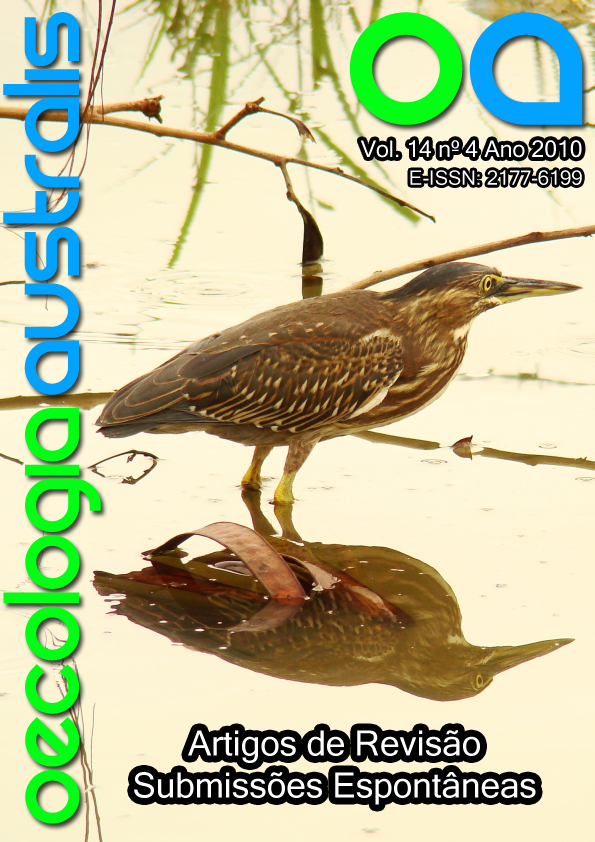DEGRADAÇÃO E BIORREMEDIAÇÃO DE COMPOSTOS DO PETRÓLEO POR BACTÉRIAS: REVISÃO
Keywords:
ecologia microbiana, biorremediação, degradação de petróleoAbstract
BACTERIAL DEGRADATION AND BIORREMEDIATION OF PETROLEUM COMPOUNDS:A REVIEW. Petroleum is an organic compound formed by biogeochemical processes, consisting mostly
of a complex mixture of hydrocarbons. Environmental contamination by this substance and its derivatives
cause major ecological impact, and techniques for their remediation have been highlighted in recent decades.
Polycyclic aromatic hydrocarbons (PAHs) from petrogenic origin are among the most persistent pollutants,
with toxic, mutagenic and carcinogenic properties to humans. Most components of oil are biodegradable,
however, it is a slow process and may take decades until complete environmental decontamination. Thus,
bioremediation techniques have been the target of several studies in order to accelerate the decontamination
process with less cost and less environmental damage. In this context, aerobic and anaerobic bacteria have
shown great remediation potential of oil pollutants, being successfully used in various techniques, such as
natural attenuation, bioaugmentation, bioestimualation, biosurfactants production, among others. This review
describes some of these bioremediation techniques, as well as aerobic and anaerobic pathways for bacterial
hydrocarbons metabolism and factors involved in its activity.
Keywords: PAH; biosurfactant; aerobic metabolism; anaerobic metabolism; biodegradation.
Downloads
Download data is not yet available.
Downloads
Additional Files
Published
2010-12-31
Issue
Section
Articles


